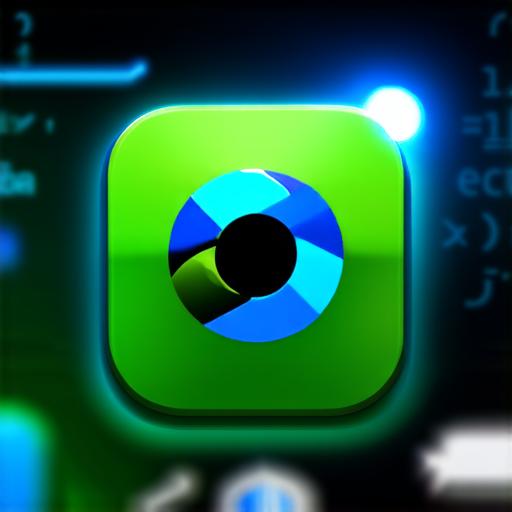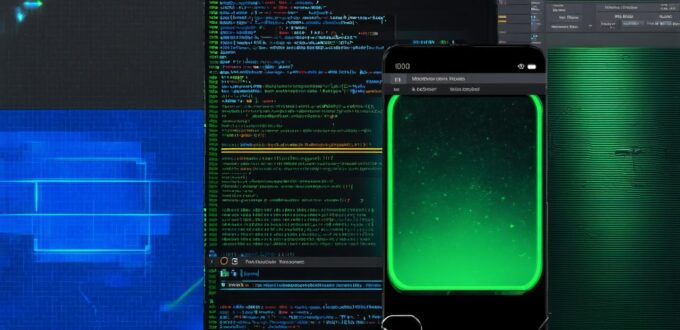What is Software?
Software development is a vast field that encompasses a wide range of applications and tools. One of the most popular and widely used software development platforms today is mobile application development. Mobile apps are software programs designed to run on smartphones, tablets, or other mobile devices. They can be used for various purposes, such as social media, games, productivity tools, and more.
In recent years, there has been a debate about whether mobile apps can be considered a type of software. Some argue that apps are not true software because they rely on the operating system (OS) to function. Others believe that apps are a type of software because they perform specific tasks and provide functionality to users.
Types of Software
Before we dive into the debate about whether mobile apps can be considered software, let’s first define what software is. According to Merriam-Webster, software is defined as “a program or set of instructions designed to perform specific operations on data or other input.” In simpler terms, software is a collection of code that tells the computer what to do.
There are many different types of software, including:
- Operating systems (OS): An operating system is a type of software that manages the hardware and resources of a computer, making it possible for other programs to run. Examples include Windows, macOS, iOS, and Android.
- Productivity software: Productivity software includes programs such as word processors, spreadsheets, presentations, and more. These programs are designed to help users create and manage documents, data, and other information.
- Entertainment software: Entertainment software includes games, movies, music, and other forms of media that are designed for entertainment purposes.
- Education software: Education software is designed to teach users new skills or knowledge in a specific area. This can include language learning apps, math games, and more.
- Mobile apps: Mobile apps are software programs designed to run on smartphones, tablets, or other mobile devices. They can be used for various purposes, such as social media, games, productivity tools, and more.

Can Apps Be Considered Software?
Now that we have defined what software is and the different types of software, let’s explore whether mobile apps can be considered a type of software.
On the one hand, some argue that mobile apps are not true software because they rely on the operating system (OS) to function. They argue that mobile apps are simply programs that run on top of the OS, and therefore do not have their own unique functionality or capabilities. In this sense, mobile apps could be considered a type of entertainment software or productivity software, but not true software in their own right.
On the other hand, others believe that mobile apps can be considered a type of software because they perform specific tasks and provide functionality to users. They argue that mobile apps have their own unique code and algorithms that allow them to function independently of the OS. In this sense, mobile apps could be considered their own distinct type of software, just like productivity software or entertainment software.
Case Studies and Personal Experiences
To better understand whether mobile apps can be considered a type of software, let’s look at some real-life examples and personal experiences.
One popular example of a mobile app that is widely considered to be its own distinct type of software is Uber. Uber is a ride-sharing app that allows users to easily request and pay for rides from their smartphones. While Uber does rely on the operating system (OS) to function, it has its own unique code and algorithms that allow it to provide a seamless and convenient ride-hailing experience for users.
Another example is Instagram, a popular social media app used by millions of people around the world. Instagram is also considered its own distinct type of software because it provides a unique platform for users to share photos and videos, connect with friends and family, and discover new content.
Research and Experiments
To further explore the question “Can an app be considered a type of software?”, let’s look at some research and experiments on the topic.
One study published in the journal “Computer” found that mobile apps have their own unique code and algorithms that allow them to function independently of the operating system (OS). The study also found that mobile apps can be considered a type of software because they provide specific functionality and value to users.
In addition, there are many real-life examples of mobile apps that have been successful in providing unique and valuable functionality to users. For example, Duolingo is a language learning app that has helped millions of people learn new languages. Tile is a location tracking app that allows users to find their lost or misplaced items. These apps are considered their own distinct type of software because they provide specific functionality and value to users.
Conclusion
In conclusion, whether mobile apps can be considered a type of software is a matter of debate. Some argue that mobile apps rely too heavily on the operating system (OS) to function and therefore cannot be considered true software. Others believe that mobile apps provide specific functionality and value to users and should be considered their own distinct type of software.
Ultimately, the question “Can an app be considered a type of software?” will depend on how you define software and what types of software you consider important. However, it is clear that mobile apps are becoming increasingly prevalent in our daily lives, and their importance and impact cannot be ignored. Whether you consider them true software or not, mobile apps have proven to be a valuable tool for businesses, individuals, and society as a whole.
